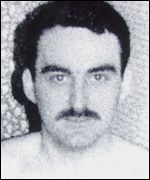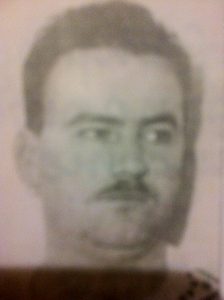ATTORNEY General John Larkin is facing mounting pressure to quit after he was accused by Northern Ireland’s senior coroner of overstretching his powers.
This evening former UUP leader Tom Elliott said Mr Larkin should reconsider his position after inquests into 14 controversial killings were suspended on the grounds of national security.
Larkin is already under pressure to step down over his decision to intervene in the row over the Marie Stopes abortion clinic in Belfast.
John Leckey, the province’s most senior coroner, had earlier said that Mr Larkin may have exceeded his powers by ordering the hearings.
They include the death of Francis Rowntree, 11, who was hit by a rubber bullet fired by a soldier in 1972.
A preliminary hearing into the circumstances of his death was due to begin in Belfast earlier today.
However, Mr Leckey announced that the hearing and a number of other inquests were being adjourned because of potential national security concerns.
He told the court the attorney general may have overstretched his powers and may not have had the legal authority to order the new inquests.
Mr Leckey told the hearing: “Clearly the attorney general takes a view as to his jurisdiction and powers which is diametrically opposed.”
He is to write to Secretary of State Theresa Villiers and the attorney general after he received an expert legal opinion on the matter seeking clarification.
Mr Leckey added: “National security was clearly to be an issue for some (inquests).”
The family of Francis Rowntree said they were considering seeking a judicial review of Mr Leckey’s decision to suspend the inquest.
The Rowntree’s family solicitor, Padraig O Muirigh, said: “The decision by the attorney general in June 2012 to direct a fresh inquest was a significant step forward for the Rowntree families’ quest for truth.
“The family are very upset by the decision of the coroner to suspend the inquest.
“They have waited 40 years to have a proper inquest into the death of their loved one and this development is a step backwards for them.”
Francis Rowntree was 11 when he was shot in April 1972 by a soldier from the Royal Anglian Regiment as he played with friends at the Divis Flats complex in Belfast.
He died four days later from his injuries.
The other adjourned preliminary hearing due to begin on Thursday concerned the loyalist murder of Gerard Slane 24 years ago.
Mr Slane, a 27-year-old father of three, was shot dead by the loyalist Ulster Defence Association (UDA) at his home at Waterville Street, west Belfast, in September 1988.
His murder led to allegations of collusion between loyalist paramilitaries and the security forces.
This evening his widow Theresa, who campaigned in America for justice for her husband, blasted the coroner’s ruling.
She said Mr Leckey’s decision was “a political move to prevent the truth about the British government’s role in the murder”.
Her husband’s picture, taken while he was in police custoday, was passed to UDA intelligence officer Brian Nelson by his military handlers in the Force Research Unit.
Nelson passed the intelligence onto the UDA’S Woodvale ‘B’ Company run by Jim Spence.
Belfast Daily revealed today that Spence was one of the most highly prized state agents inside the UDA codenamed ‘SENTINEL’.
Acting on intelligence provided by Nelson, Spence ordered and planned the murder of Pat Finucance on the direct orders of his handlers in FRU and RUC Special Branch.
A report into Mr Finucane’s murder is due to published next month but Spence’s name will not be mentioned.
Neither will the names of a number of other informants who played key roles in the Finucane murder.






